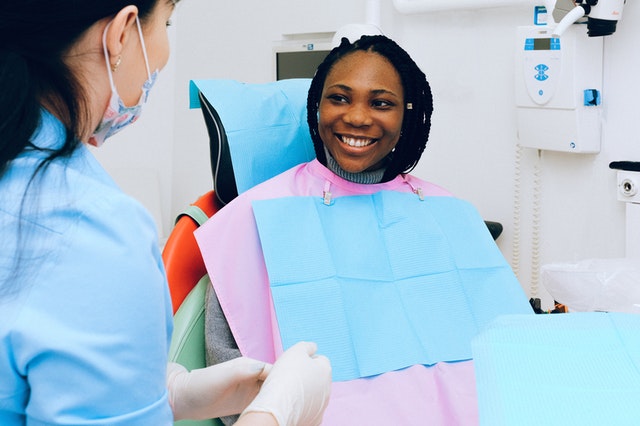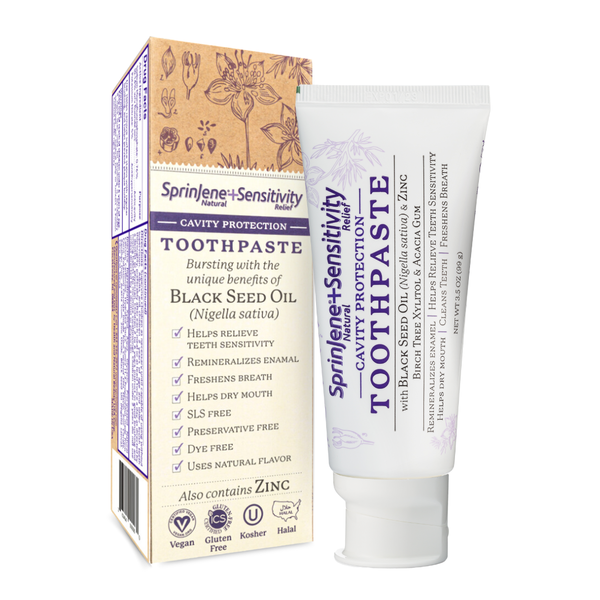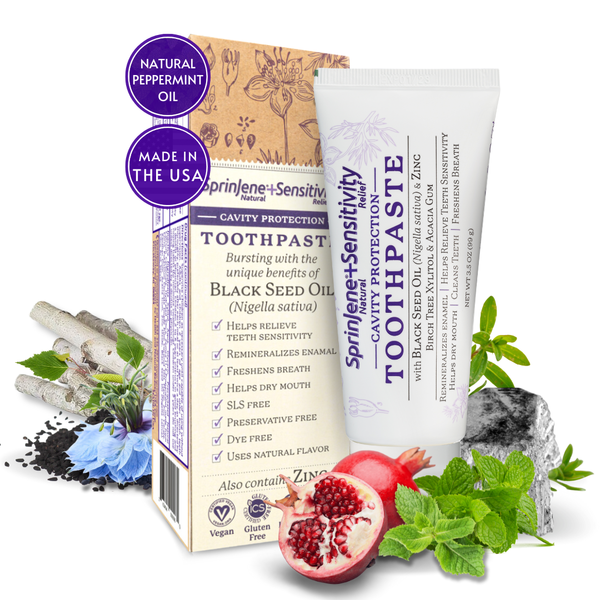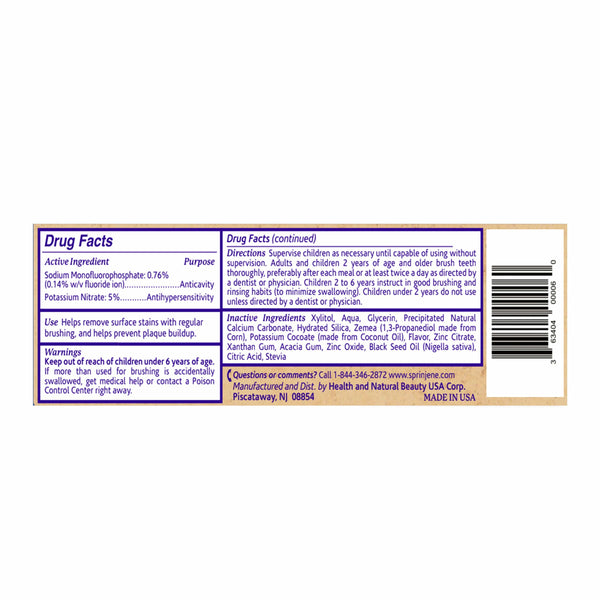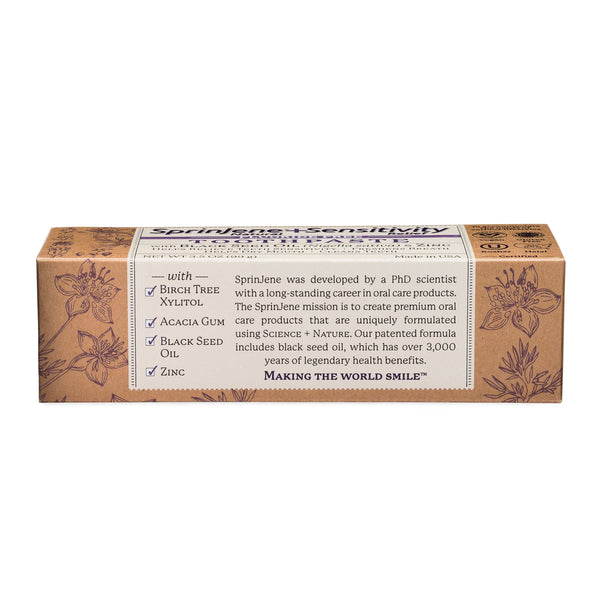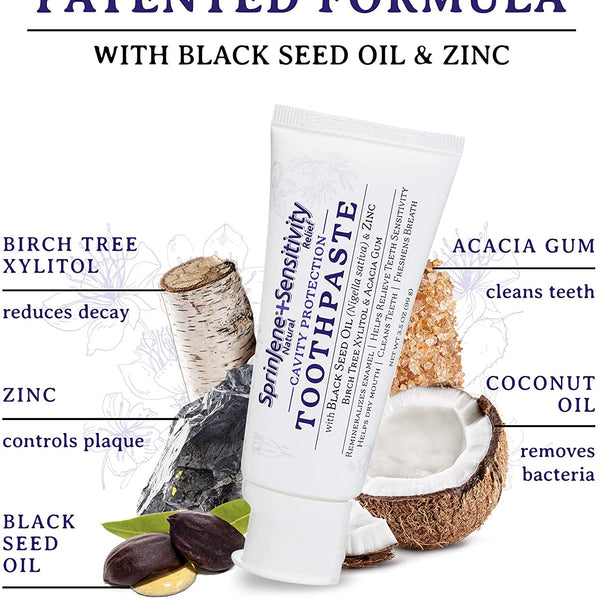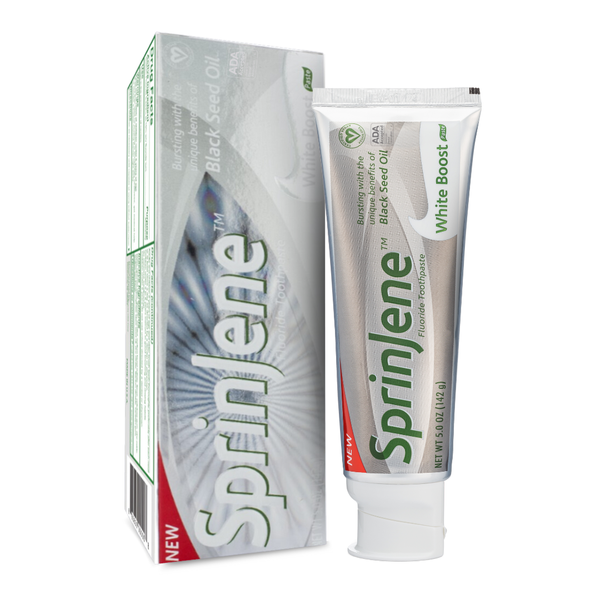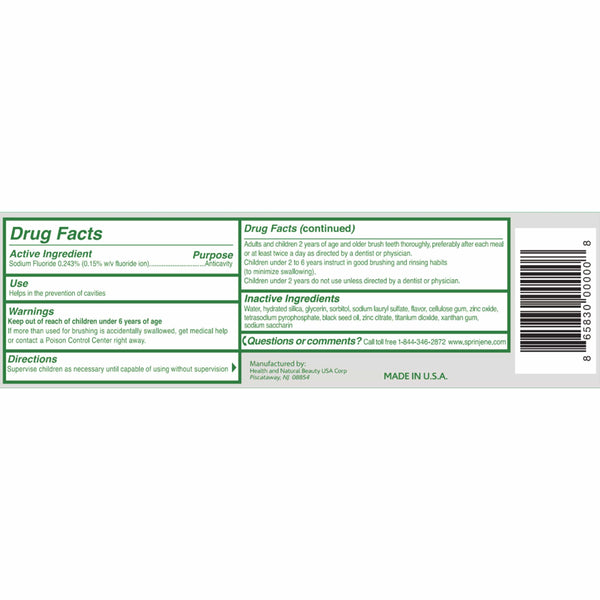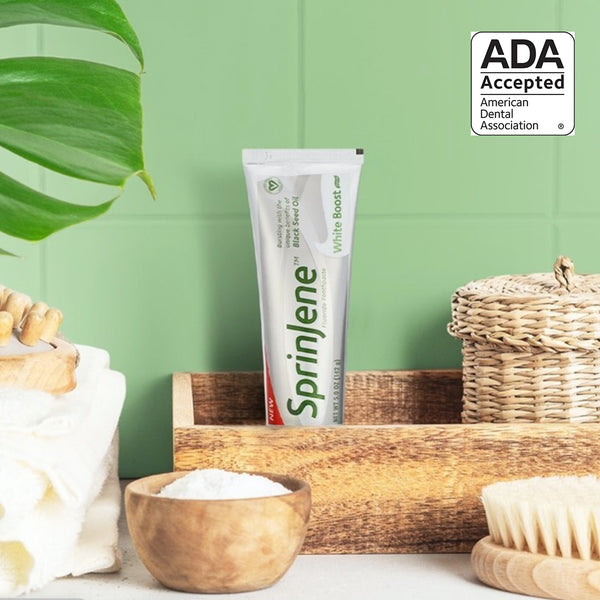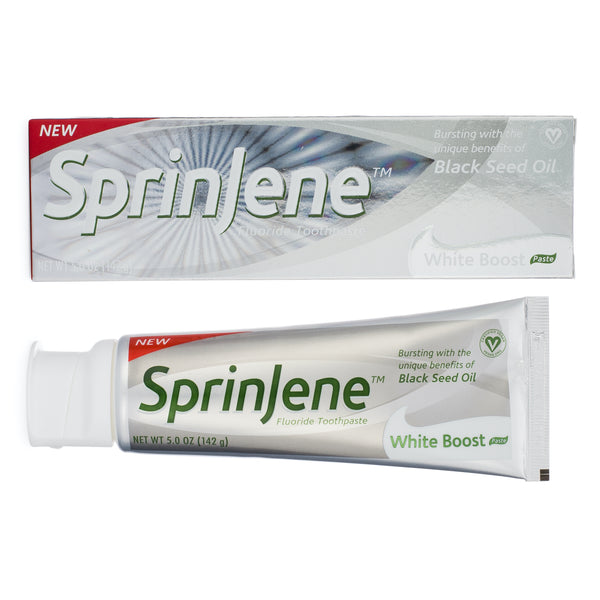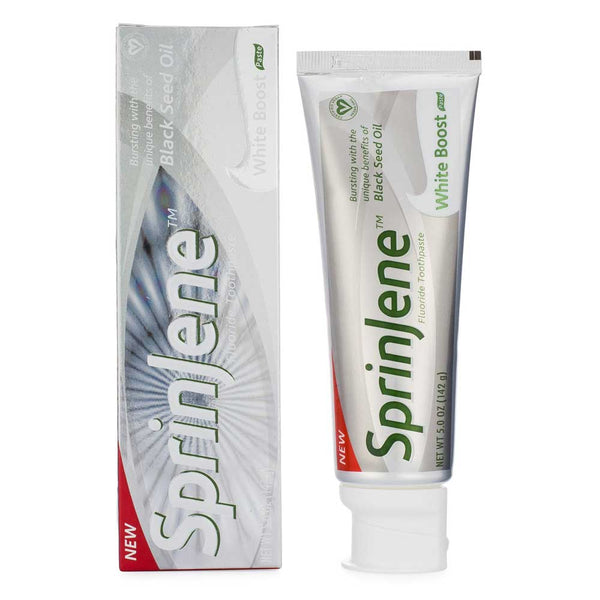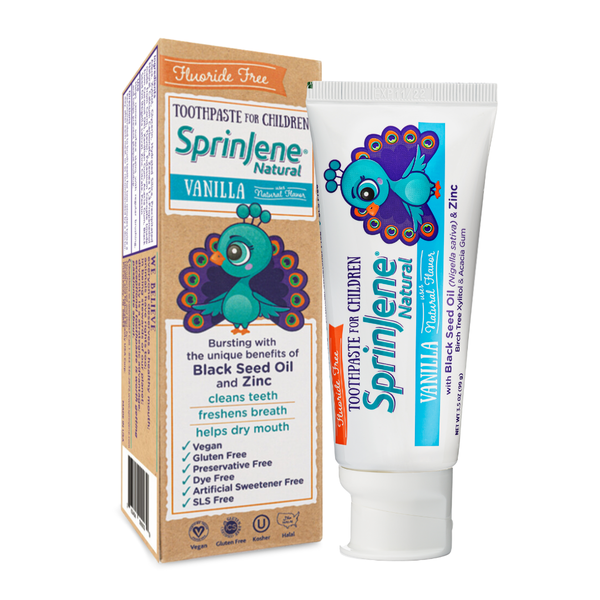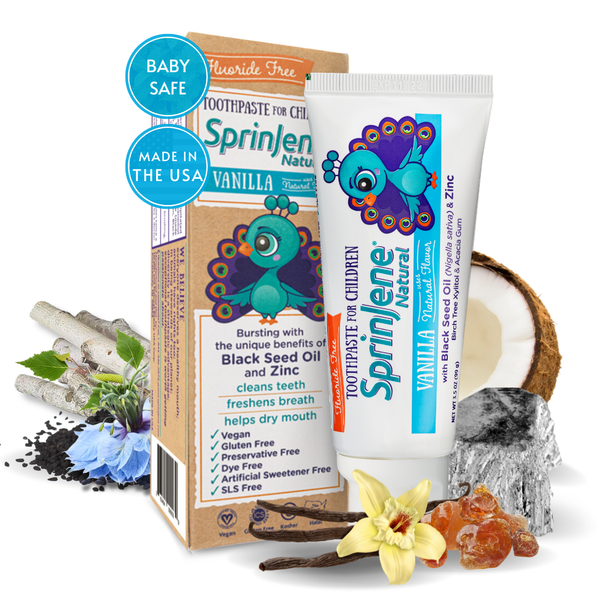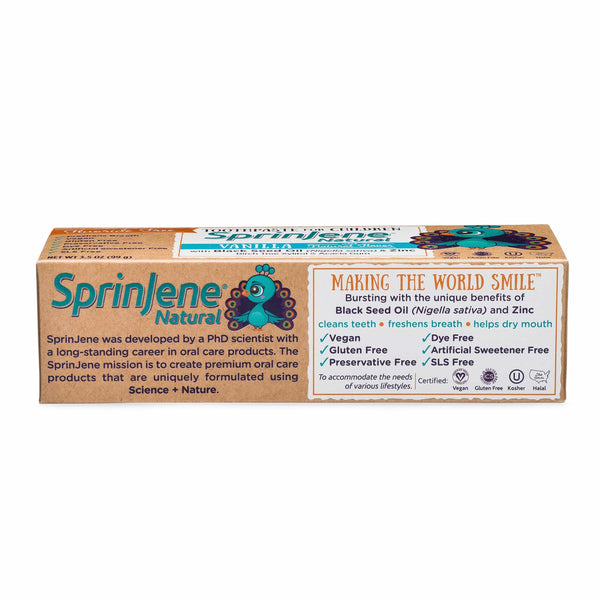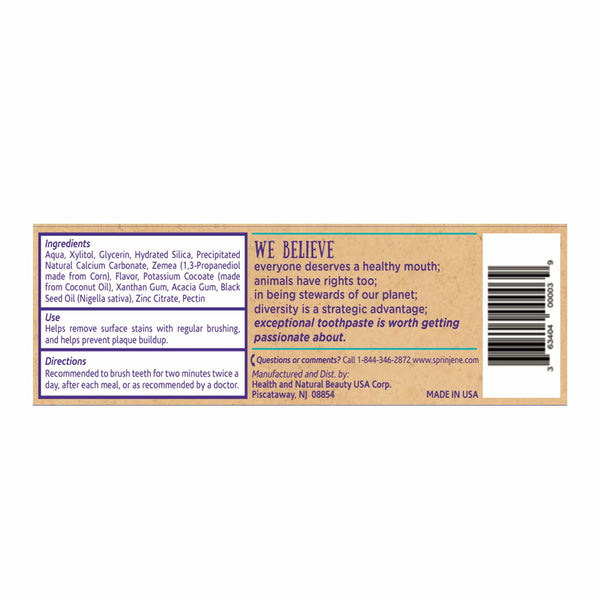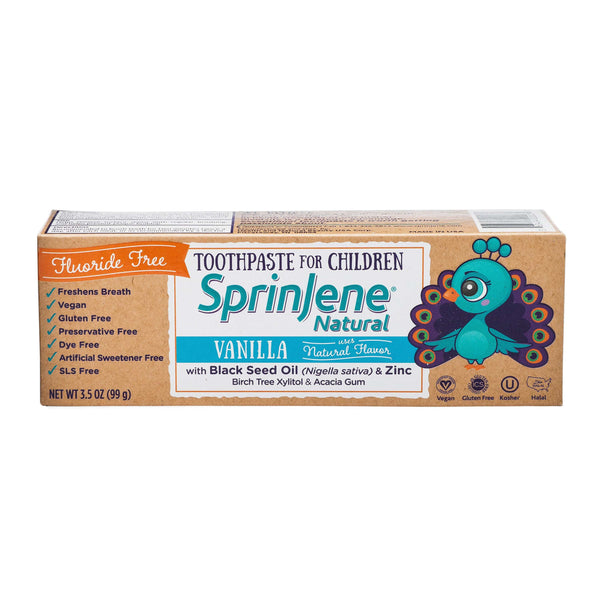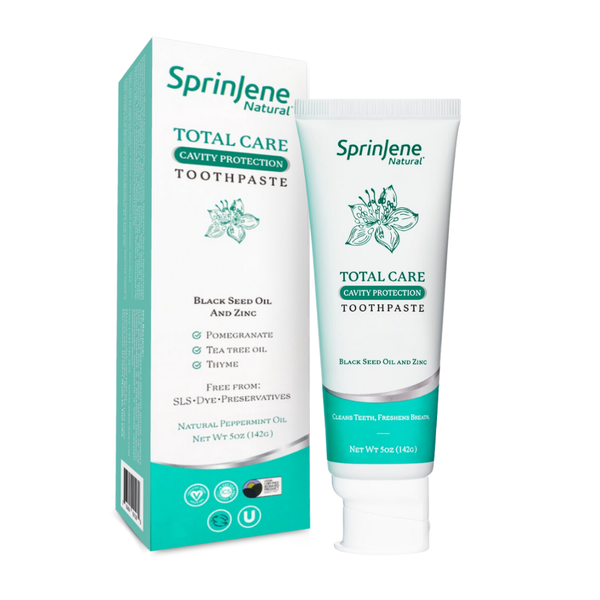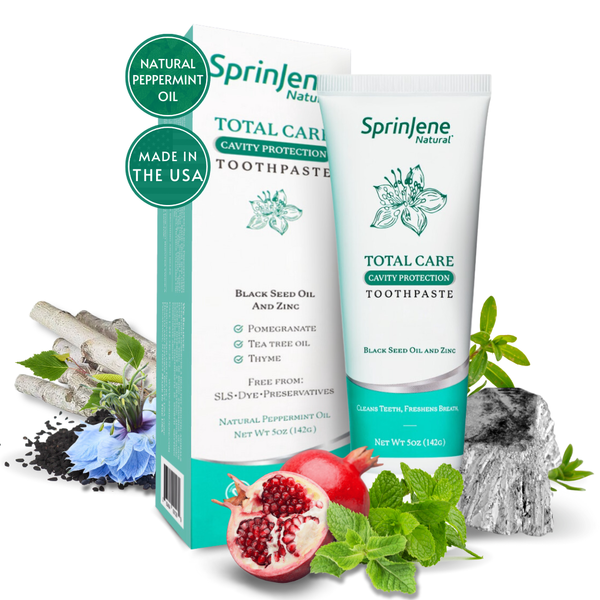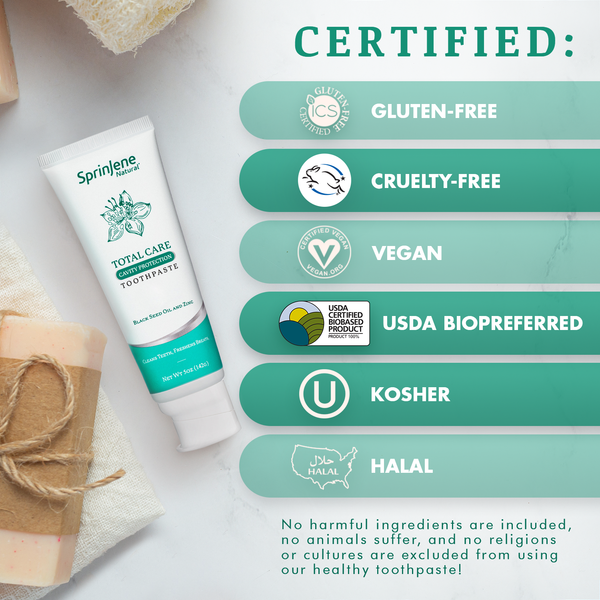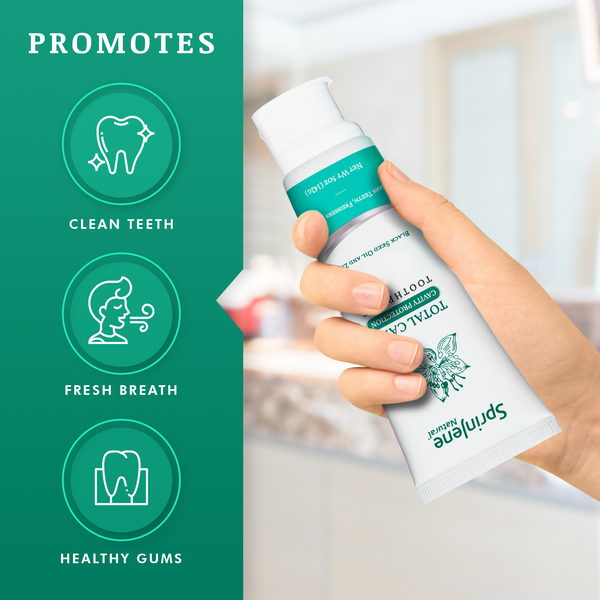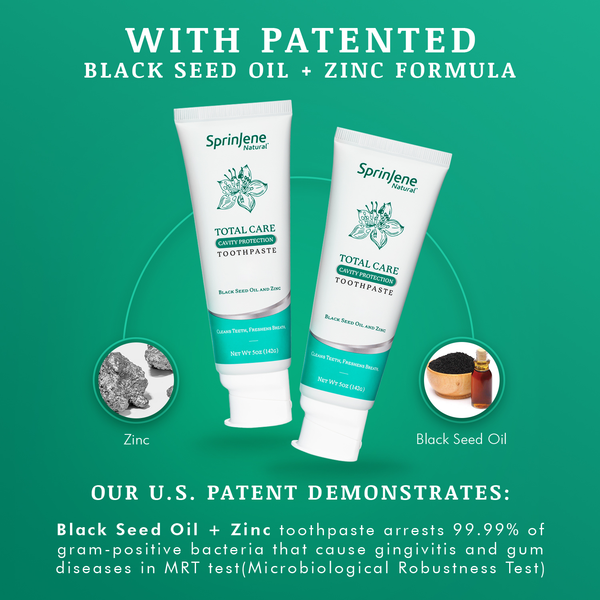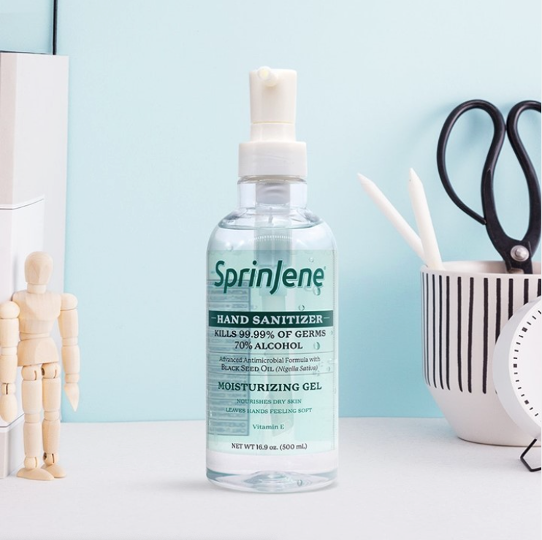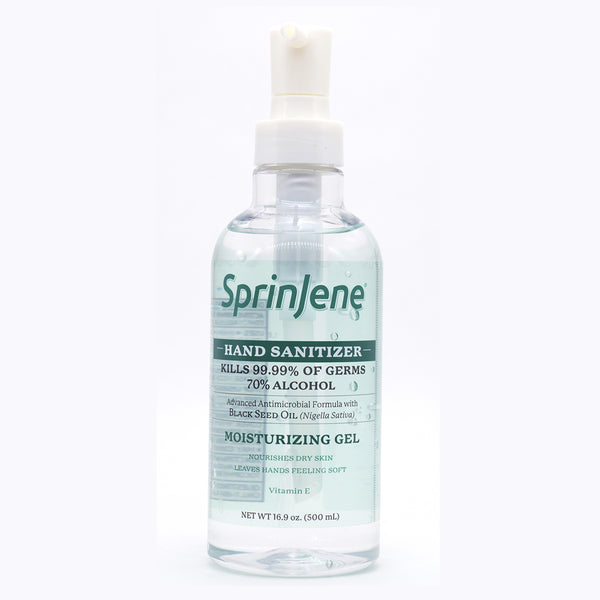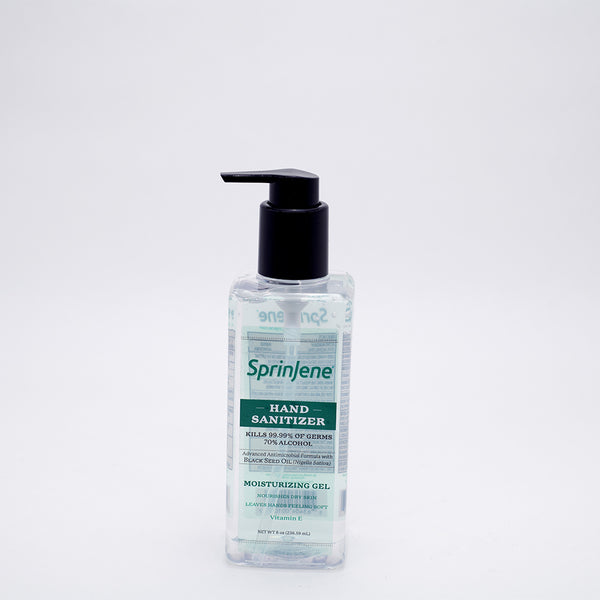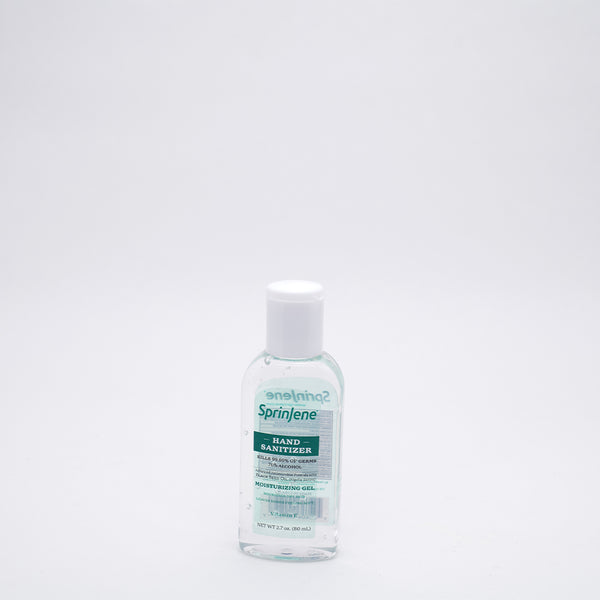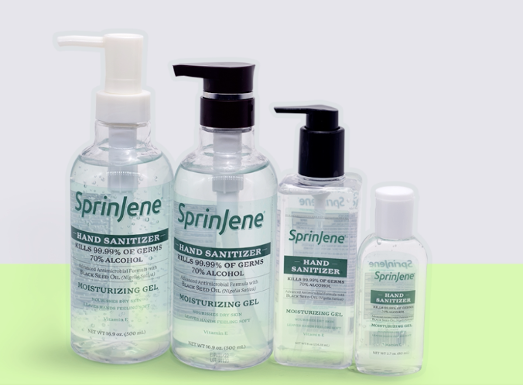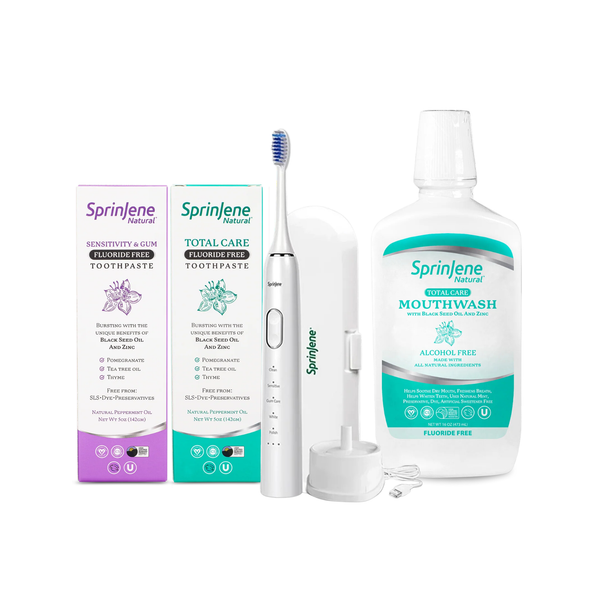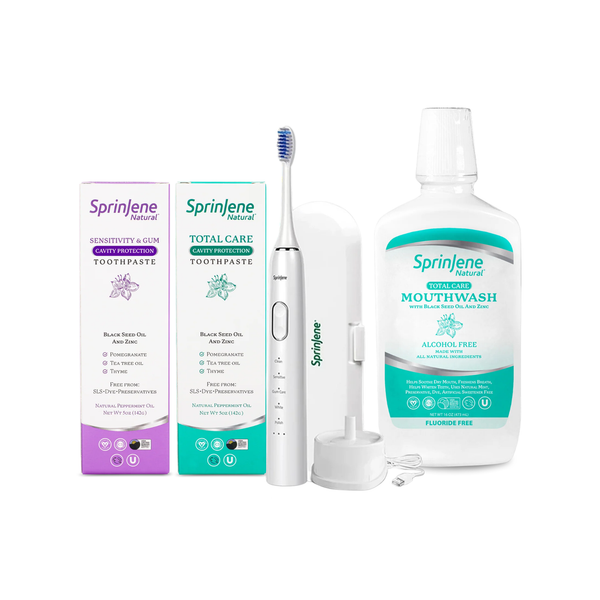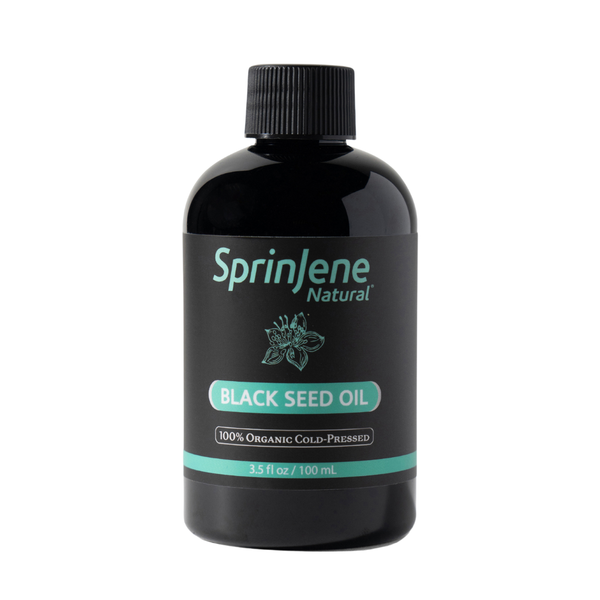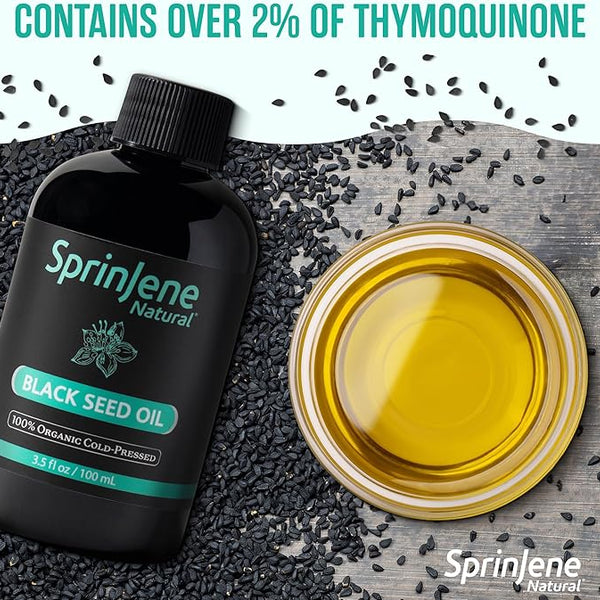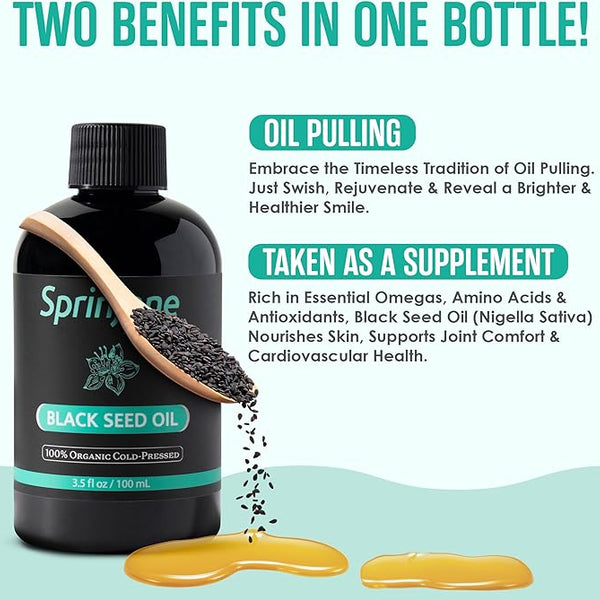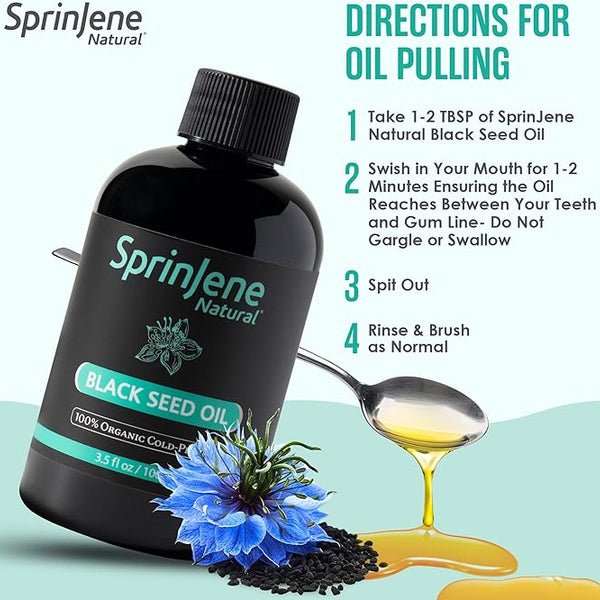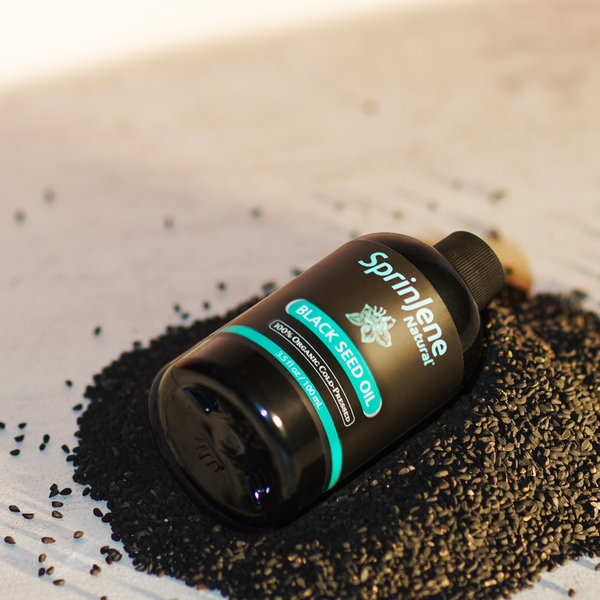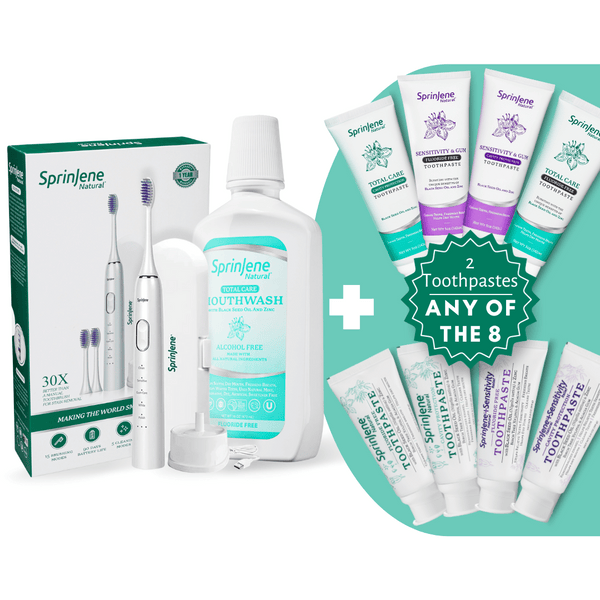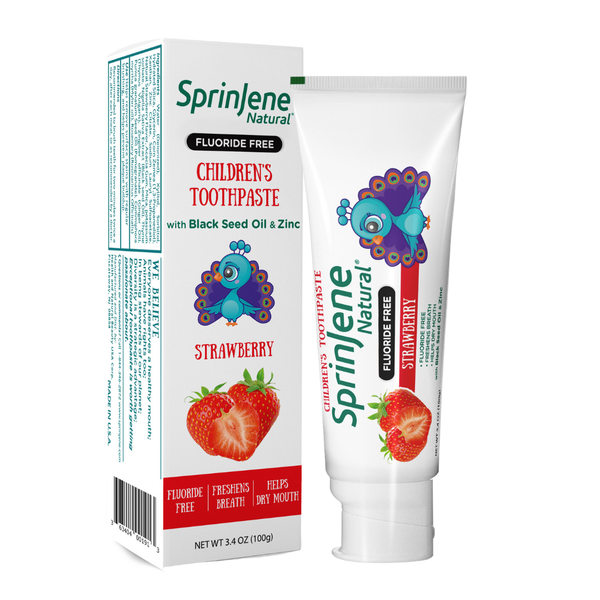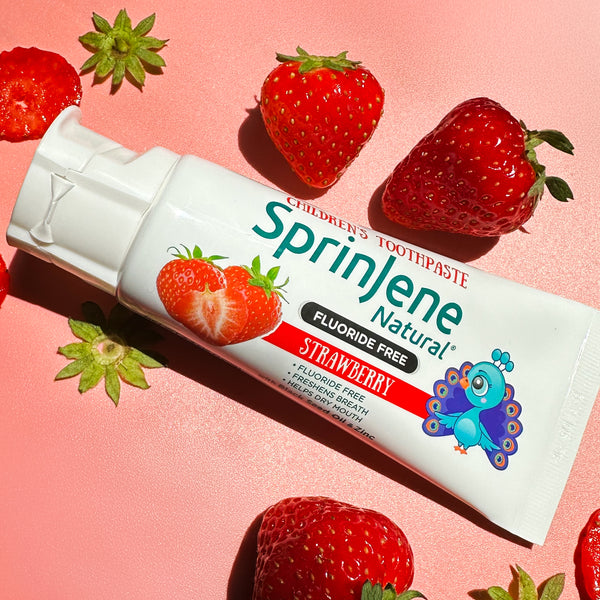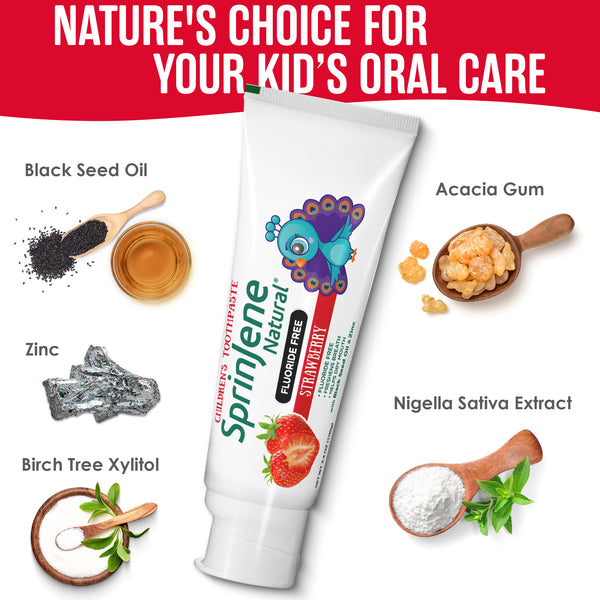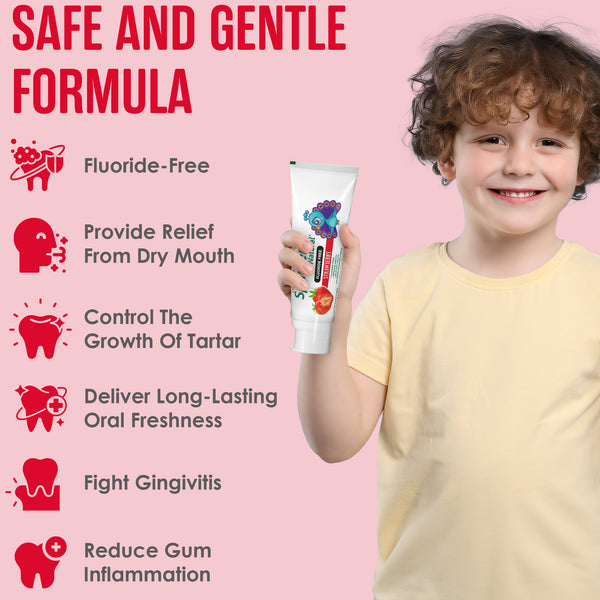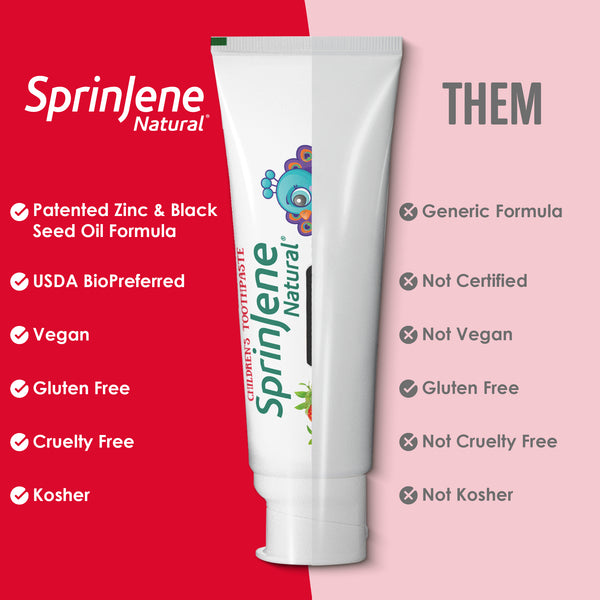
Since there has been a positive and gradual shift towards consuming natural and preservative free food and beverages. People have also started considering reducing the use of household cleaners and detergents that have toxic chemicals harmful for humans as well as the environment. It is only sensible to consider that toothpaste and oral hygiene products which are being used at least twice a day should also be safe and nontoxic.
Are we willing to take steps to improve the health of our families and our own?
The membrane lining the oral cavity has high absorption, and so the chemicals entering the mouth are absorbed into the bloodstream. Dental products are used on a regular basis, hence, these must be the safest products for humans use. The commercially available ones have many ingredients which are toxic. These pea-sized dollops on the toothbrush, twice a day, add up to lots of toxic accumulation. Therefore, it is stressed that a tooth paste should be chosen carefully and checked for any toxic ingredients they might contain.
Generally dentists don’t recommend a particular brand or formula of tooth paste, rather they do recommend the type that you should use. But what they do recommend is that you should try to avoid tooth pastes that use the following ingredients:
- Triclosan
- Sodium lauryl sulfate (SLS) (closely connected to canker sores)
- Artificial colorings
- Fluoride (harmful in children if swallowed in large quantities)
- Titanium dioxide
- Highly abrasive ingredients
What they recommend in a tooth paste is that it should ideally possess the following properties:
- Help prevent tooth decay and gingivitis
- plaque and tartar removing and food debris
- abrasive to remove stains
- assist in eliminating bad breath
Added properties of toothpastes include whitening agents as well as those for sensitive teeth for those in whom it is required.
‘Some toothpaste contain strong chemicals that can cause oral tissue to slough off. I have seen long strings of sloughed tissue on the buccal mucosa of people using certain toothpastes’, says Dr. Kuhn. He adds that tartar control toothpastes are especially damaging to the mucosa. Zinc Citrate containing toothpastes have been shown to reduce calculus naturally by 26%.
I attended a seminar given by Integrative Body Psychotherapy (IBP) with Naturopathic Doctor, Dr. Merrily Kuhn, ND, RN, PhD, Dr. Kuhn said that an antibacterial chemical in popular toothpastes is proving to be an endocrine disruptor in the American bullfrog.
The FDA reported that is has been shown to alter hormone regulation in animals. This chemical is also used in antibacterial hand soaps and hand sanitizers. The chemical kills the good and bad bacteria. Thieves foaming hand soap and hand purifiers offer a great alternative to the chemical products.
Harmful ingredients identified in commercially available toothpaste:
Sodium Lauryl Sulfate
The most common ingredient in toothpaste is sodium lauryl sulfate (SLS) or lauryl sarcosinate, which helps create a foaming lather in the mouth and removes dirt and grease from the teeth. Detergents cause sensitization and interfere with the functioning of taste buds by breaking up the phospholipids. It irritates the oral tissues and can cause canker sores, oral ulcers, stomach problems, and even cancer.The SLS is a carcinogen and contains traces of 1,4-dioxane, which is classified by the International Agency for Research on Cancer as a Group 2B carcinogen. Moreover, it is also damaging and toxic for aquatic life.
Flavorings
The taste of toothpastes is due to the strong flavoring agents and the sweeteners which mask the taste of other ingredients and enhance palatability of toothpaste.
Aspartame is the most common artificial sweetener used, which is 200 times sweeter than sugar. Aspartame has been known to be metabolized inside the body to poisonous methanol and formaldehyde and its side effects include migraine, dizziness, seizures, nausea, numbness, muscle spasms, weight gain, rashes, depression, fatigue, irritability, insomnia, vision problems, hearing loss, heart palpitations, anxiety, vertigo, memory loss, brain tumors, birth defects, and joint pain. Aspartame consumption can lead to Alzheimer's disease, diabetes, multiple sclerosis, epilepsy, lymphoma, Parkinson's disease, and fibromyalgia. Saccharin, another commonly used sweetner used in toothpaste is a petroleum-based sugar substitute from crude oil and is 350 times sweeter than cane sugar. It has been linked to a cancer-causing agent.
Dyes And Colorings
Blue, red, yellow and green are the popular dyes used in the toothpaste. Long term absorption of these might be related to learning and behavioral issues such as hyperactivity in children, severe allergic reactions, and other health problems such as cancer.
Fluoride
Almost all the conventional toothpastes sold in the US have fluoride. Fluoride strengthens tooth enamel and makes teeth more resistant to acid produced by bacteria. However, the health risk of fluoride is high in children. It can cause permanent tooth discoloration, stomach problems, skin rashes, and impairment in glucose metabolism. The US Food and Drug Administration (FDA) advocates a warning label on fluoride toothpaste. Fluoride is a toxic chemical that accumulates in tissues over time, disrupts enzyme function and produces a number of serious adverse health effects, including neurological and endocrine dysfunction. Children are particularly at risk for adverse effects of overexposure.
Nausea and vomiting are also the problems which might arise with topical fluoride ingestion.
Antimicrobials
Antimicrobials in toothpaste retard oral bacterial growth. Triclosan, an antibacterial agent to fight gingivitis, is found in toothpaste . Antibiotic resistance and endocrine disruption are the growing concerns of the irrational use of triclosan. Problems due to triclosan include breast, ovarian, prostate and testicular cancer, preterm and low birth weight babies, precocious puberty in girls, and undescended testicles in boys, weakened heart muscle function, endocrine issues, and bone deformation. Triclosan may interfere with cell signaling in the brain, heart, and other cells
It may promote breast cancer progression. In 2016, the FDA banned triclosan in soaps; however, surprisingly, it is still allowed in toothpaste.
Thickening Agents
Carrageenan, cellulose gum, guar gum, xanthan gum, and gluten are used to thicken the toothpaste. Gluten causes celiac disease. Carrageenan is a common thickening agent in toothpastes.It has been seen to cause inflammation in the intestine and cause colonic tumors.
Humectants, such as glycerol, propylene, glycol, and sorbitol, all prevent water loss from toothpaste and help to keep it moist. Xylitol is also used for this purpose, which provides moisture and prevents cavities. It is more effective than fluoride in preventing dental caries in children's permanent teeth. It has not been found to cause any harmful effect.
Propylene glycol is used as a surfactant in toothpaste. It is known to be a skin, eye, and lung irritant and causes organ toxicity, cancer, and reproductive issues and skin irritation. PEG is a common ingredient of toothpastes as a dispersant and has an allergenic potential.
Preservatives
Sodium benzoate, methylparaben, and ethylparaben are the common preservatives used in toothpaste. Parabens mimic the hormone estrogen and can potentially cause developmental, and reproductive issues and cancer.
Diethanolamine
Diethanolamine (DEA) is found in foaming toothpastes. It is a known hormone disruptor, which is readily absorbed through the skin and has been linked with cancers of the stomach, esophagus, liver, and bladder. The Environmental Working Group ranks DEA as a number 10 in its cosmetics database (the most toxic score) due to high concerns of organ toxicity, contamination concerns, irritation, and moderate cancer risk.
Natural Toothpaste
After careful consideration regarding the harm that everyday toothpastes can cause our bodies, let us now look at the benefits that natural toothpastes have to offer.
Each of these harmful ingredients can be replaced with natural and non toxic alternatives that produce the same results. The following are listed benefits of a 100% Natural and USDA bio preferred and certified Tooth paste called SprinJene. It is available with and without fluoride and is Cruelty free as well as Halal and Kosher certified.
These are the ingredients present:
Black seed oil - Known to have excellent antimicrobial and anti-inflammatory properties
Zinc- Helps control the growth of bacteria, plaque and tartar thereby promoting healthy gums. ADA Approved
Acacia gum - A natural organic binder
Xylitol and Stevia- non cariogenic natural sweeteners. Xylitol helps promote saliva production and prevents tooth decay. It is also ADA approved.
Coconut oil - Helps lubricate oral surfaces to bring comfort to dry mouth sufferers and may help to prevent tooth decay after some enzyme digestion.
Green apple and Mint extracts - Taste modifiers with cooling sensation.
Aqua - Solvent to solubilize salts. Formulation aid.
Silica- Natural abrasives to assist stain removal.
Glycerin - Glycerin is a non-carcinogenic and a Non-GMO humectant that helps protect our formulas against bacteria growth and keep the product moist.
In addition to these properties SprinJene is a certified Gluten free toothpaste making it 100% safe for people suffering from Celiac disease and gluten allergies.
SprinJene Natural Toothpaste
There are many commercially available dental products that can help with preventing plaque from building up and keeping your mouth bacteria free. This is the first line of defense against dental disease, therefore it is very important that you carefully select the right brand of toothpaste.
What if there was one brand of toothpaste that was exceptionally reliable and could cater to all of your Dental needs. One that is made entirely from Natural ingredients and is free from harmful chemicals. It can be used by adults and children alike.
SprinJene toothpaste takes pride in its patented black seed and zinc formulation which makes it unique and different from all other toothpastes. This 100% Natural toothpaste is made up of a fabulous mix of ingredients which have immense benefits including being:
- Anti-bacterial
- Anti-plaque
- Anti-fungal
- Anti-inflammatory
- As well as having wound healing properties.
All of these properties along with being chemical free and having no side effects makes SprinJene toothpaste an ideal choice for you and your family.
Together, these ingredients may help to:
• Provide relief from dry mouth
• Help to control the growth of tartar
• Deliver long-lasting oral freshness
• Fight gingivitis (gum disease)
• Reduce gum inflammation
Certified: Vegan, Cruelty-Free, Gluten-Free, Kosher, Halal
Children
The toothpaste range includes three different flavors specifically designed for children. These come in fluoride and fluoride free options.
- Vanilla
- Apple mint
- Watermelon
Adults
The adult range also has a fluoride free option for people who have allergies, fluoride toxicity or other medical reasons for not consuming fluoride.
The fluoride range consists of the following variants:
- SprinJene Natural Cavity protection tooth paste: Anti-plaque, Anti-bacterial, suitable for everyday use.
- SprinJene Natural Sensitivity relief toothpaste, also available in a fluoride free option: For people who suffer from extreme Dentine Hypersensitivity.
- SprinJene Original Health boost tooth paste: For people who suffer from sensitivity of gums and teeth.
- SprinJene Original Fresh boost tooth paste: To combat Bad breath.
- SprinJene Original White boost toothpaste: To combat stains and help whiten the teeth.
Conclusion
This article concludes the harmful effects of commercial toothpastes and advises that all are not safe. Chemicals, pesticides, genetically modified organisms, ingredients, glutens, fluoride, saccharin, SLS, abrasives, carrageenan, parabens, triclosan, artificial sweeteners, additives, propylene glycol and detergents may be present in the toothpaste which can cause a lot of harm to the oral cavity over a period of time. Therefore, switching to a natural toothpaste is the most obvious and preferred option as recommended by dentists as well.

